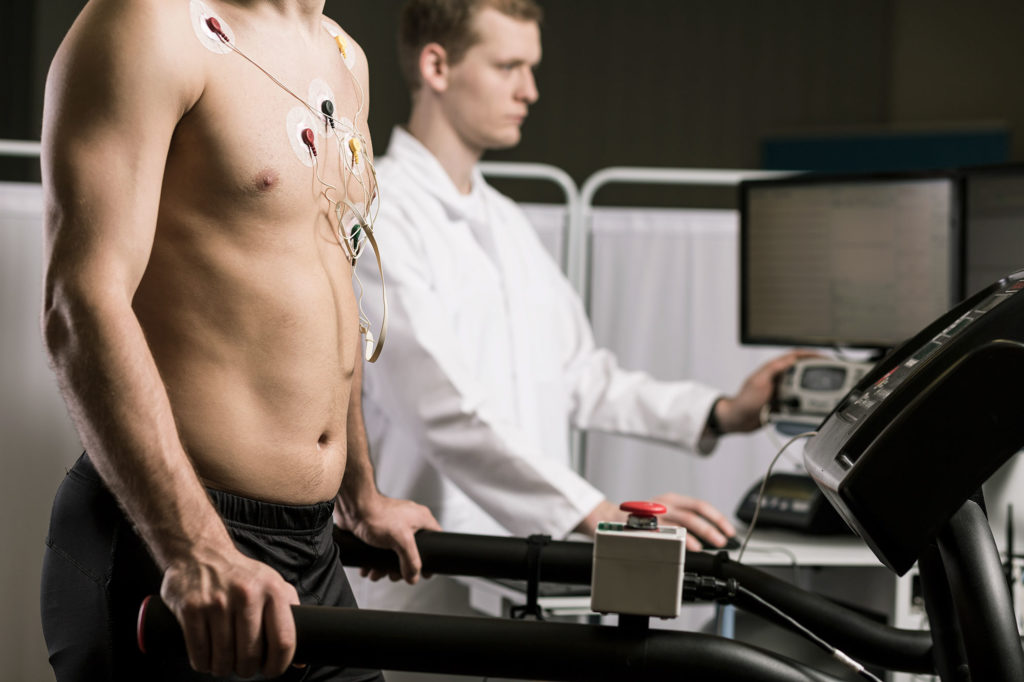
Exercise Stress Echocardiogram
STRESS ECHOCARDIOGRAM Consent Form
What is an Exercise Stress Echocardiogram ‘Stress Echo’?
An Exercise Stress Echocardiogram or ‘Stress Echo’ is a combination of an ultrasound and exercise test. The test compares how your heart muscle is pumping before and after exercise. This test takes about 30 minutes.
What to do in preparation for the test
Avoid having a heavy meal 2 hours prior to the test. Take your usual medications on the day of the test unless your cardiologist or GP tells you otherwise.
What to wear on the day
Patients should wear comfortable loose clothes such as tracksuit pants or shorts and comfortable walking shoes such as runners.
What to expect during the test
You will be asked to expose your chest to allow for scanning of the heart and attachment of the monitoring cables. A gown (opening at the front) will be available to patients. Chest hair may need to be shaved to allow the electrodes to adhere to the skin. The cardiac sonographer will do this at the time of the test.
The cardiac sonographer will take images of your heart whilst at rest. A water-soluble gel is used as a contact medium between the probe and your chest wall to improve image quality. You will feel pressure on your chest where the sonographer is imaging.
Once the resting images have been taken you will be connected to an ECG machine used to perform a standard treadmill exercise test. A cardiologist will be present throughout this part of the test and your blood pressure, heart rate and symptoms will be constantly monitored. The treadmill will increase in speed and slope. It will be stopped when you cannot walk/run any further, when you have reached an appropriate target or at the cardiologist’s discretion.
At the end of the exercise test the sonographer will take more images of your heart before your heart rate slows down. Collecting these pictures can be difficult after exercise due to your increased breathing effort and you may be asked alter your breathing pattern in order to obtain good quality images. The cardiologist will compare the resting images to those taken at maximum exertion.
Please inform our cardiac sonographer/cardiologist of the following:
- There is any limitation to your exercise ability
- You have been suffering chest pains on the day of examination
- You have/had a recent viral infection/skin infection that poses a risk to others
- Any questions/concerns/preferences you would like addressed prior to commencing
- Any additional information regarding your health status you think we should know (eg. easily bruising, allergies etc)
What to bring on the day
- Your referral from your GP or specialist for the test
- Medicare card
- Any Full Pension or Health Care card
Results
A detailed report of your results will be forwarded to your referring doctor, usually the same day.
Complications & Risks
The examinations are generally very safe, with very low risk of complications
Common events include: Dizziness and/or shortness of breath during examination.
Rare events (less than 1 in 1000) include: Abnormal rhythm during exercise. If this occurs, it will often settle down, but occasionally you will need additional treatment for this. Asthma attacks may also occur during exercise. (Less than 1 in 2000) risk of heart attack, allergic reaction to electrodes/gel or falls from the treadmill resulting in injury.
Extremely rare event (less than 1 in 10,000) include: Risk of cardiac arrest resulting in death.
The room is equipped with experienced cardiac staff and emergency equipment, if needed.
* You will be asked to sign a patient consent form on arrival to the clinic. Please ensure you raise any outstanding concerns with our supervising cardiologist prior to agreeing to undergo the Stress Echocardiogram.
- Cost of service
- $550 Medicare rebate approx $401.40
- Out of Pocket
- $148.60

